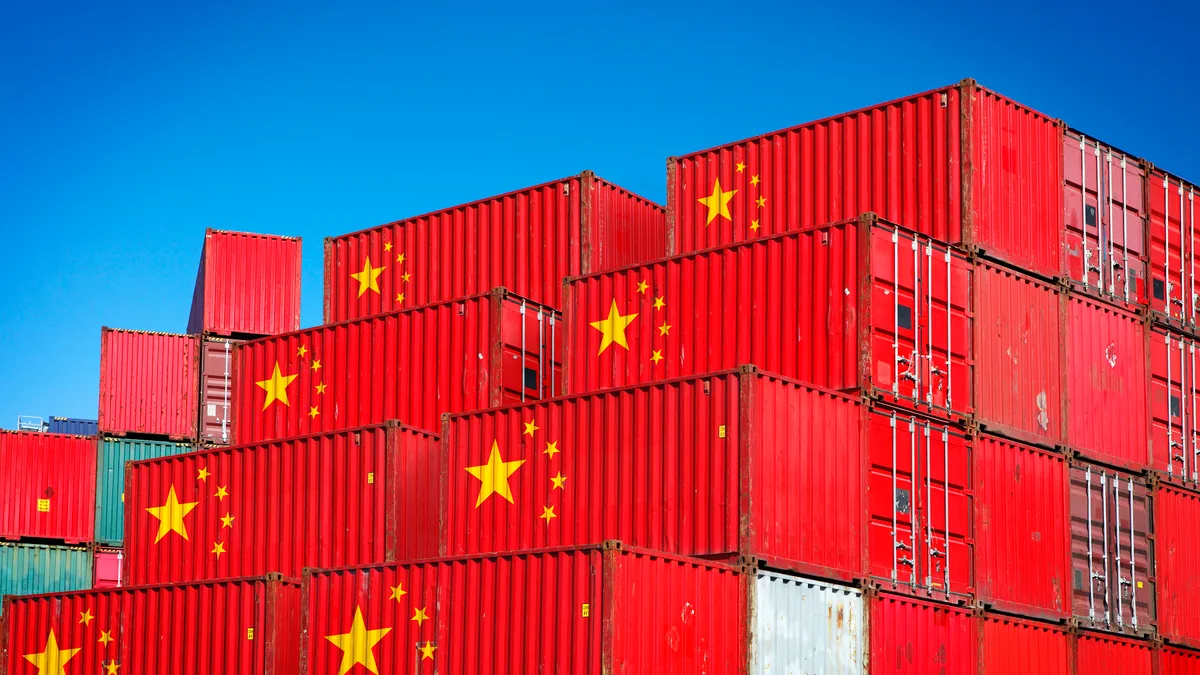Dive Brief:
- The National Waste & Recycling Association (NWRA) sent a letter to President Donald Trump on Feb. 28 urging him to push back on China's scrap import policies as part of ongoing trade talks with the Chinese government.
- "NWRA believes there are better ways to achieve China’s goal of improving its environment than to place unrealistic restrictions on imported recyclables," President and CEO Darrell Smith noted in the letter, requesting a five-year phase-in period and calling on China to adopt international material standards.
- "We continue to support an 'all of the above' approach to addressing the challenges that the China ban presents to our members and the industry," Smith told Waste Dive via email. "The positions of our individual members are broad, but the association’s Board of Trustees maintains a position that we will work on all fronts to assist our members during this troubled market and time of transition."
Dive Insight:
NWRA previously wrote to Vice President Mike Pence in May 2018 requesting that he make China's scrap import restrictions a priority during trade discussions. This most recent letter echoes many of the same talking points: the fallout from China's ban, it says, could "have a devastating effect on recycling that may set the industry back decades," while sinking commodity values and lack of markets might "shake public confidence and create long term consequences in material quality and segregation efforts."
In the meantime, Smith said via email, NWRA will continue prioritizing consumer education, advocating for more domestic recycling capacity in potential federal infrastructure legislation, coordinating discussions through its Organizations for Supply Chain Recycling coalition and "working with the administration on solutions from both the domestic and international trade angles."
While Smith informed Waste Dive that the letter "has been well-circulated and reaching the right people," the sustained pushback against China's scrap import policies puts the association somewhat out of sync with many of its largest members' public positions. With China poised to ban all scrap imports by 2020, industry attention has largely shifted toward new domestic and international market options for direct scrap imports.
Republic Services CEO Don Slager remarked during their Q4 earnings call that the company is "no longer dependent on China" — and previously noted that he "kind of welcome[s] this China chaos, because it gives us the platform that we need [to] have the conversation that we frankly probably should have been having 10 years ago." Waste Connections CEO Ron Mittelstaedt similarly observed during the the company's Q2 earnings call that China's policy forces the industry to "relocate this whole recycling model and create a model that is sustainable on its own."
Industry associations also maintain they're no longer operating under the assumption that China will change its mind.
"SWANA and others in the industry have been in frequent contact with the key agencies involved in the current U.S.-China trade negotiations for more than a year," Executive Director and CEO David Biderman told Waste Dive via email. "From all reports, it appears unlikely that China is going to reverse its decision to restrict foreign imports of recyclables and scrap."
"The Chinese Government has been very clear about its intent to address its domestic environmental concerns with a wide-ranging strategy in which scrap import restrictions is one element — and the Government has also been clear that these policies are here to stay," commented Adina Renee Adler, ISRI's assistant vice president of international affairs, via email. "We do not agree with the Chinese import restrictions because they stifle trade of high-value, environmentally-friendly scrap commodities. But we also know that as an association working on behalf of our members, our efforts are more effectively directed at initiatives that boost recycling at home while also increasing demand among consumers here and in other regions of the world that value scrap for its economic and environmental benefits."
Still, Smith said he's not ruling out the power of persuasion — or Trump's potential interest in the issue.
"The political world is complicated," he noted. "One never knows what small effort will yield great results."















